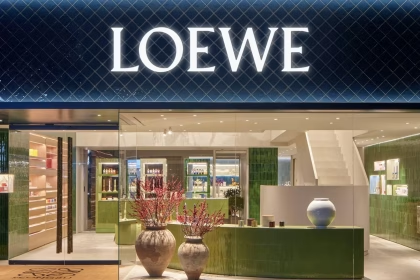In Moscow, a fake Gucci restaurant has recently opened its doors, much to the surprise of the luxury fashion brand. The unauthorized establishment is the brainchild of Russian musicians Yegor Creed and Timati, along with restaurateur Anton Pinsky. Despite having no affiliation or approval from Gucci, the restaurant features furniture upholstered in fabrics bearing the iconic GG monogram and signage that displays the name “GUCCI CAFE” upside down and backwards.
The founders of this counterfeit establishment have attempted to defend their actions by arguing that they are not infringing on any of Gucci’s rights, as they are operating a restaurant and seeking registrations for “EFAC ICCUG” – not “GUCCI CAFE.” They have also applied for trademarks for inverted versions of “GUCCI,” “DOM GUCCI,” and “GUCCI CAFE” for use in connection with restaurant services.
This bold move highlights the enduring appeal of Western luxury brands in Russia, despite the mass exodus of companies and their products following the onset of war and corresponding sanctions regimes. The fake Gucci restaurant serves as a dangerous precedent, potentially opening the door for other entrepreneurs to launch businesses under false and misleading names or exploit legal loopholes to avoid copyright infringement consequences.
A GUCCI cafe has been opened in Russia — without Gucci’s permission, of course. The logo is an upside-down GUCCI CAFE, and the furniture inside is upholstered in fabric with GG monograms. The owners also applied for trademarks: inverted GUCCI, DOM GUCCI, and GUCCI CAFE. pic.twitter.com/Q895bqd1ye
— младоолігархат (@Oh_89) April 10, 2023
Gucci has confirmed that it is in no way connected to the similarly named outpost and did not grant any consent, permission, or rights for the establishment’s opening. The company’s representative stated that Gucci will “take all necessary protective measures” to respond to such infringement.
The outcome of a hypothetical trademark infringement lawsuit between Gucci and the founders of the fake restaurant remains uncertain, given Russia’s stance on non-native holders’ rights and the potential for unpredictable decision-making by Russian courts. In the meantime, brands are being encouraged to closely monitor unauthorized uses of their trademarks in Russia to protect their intellectual property.

















